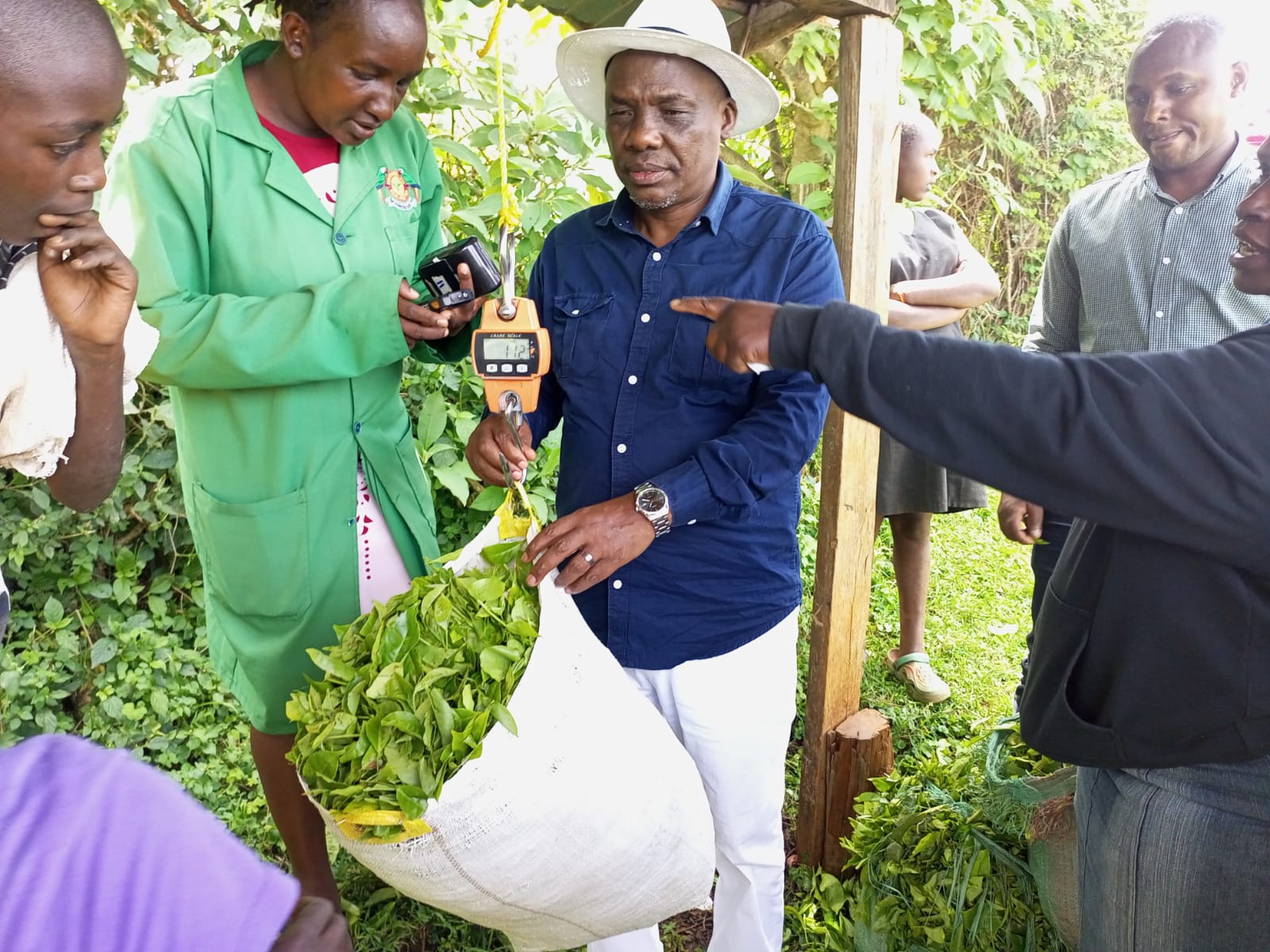
Small-scale tea farmers in the country will get their dues deducted to meet the cost of subsidised fertiliser by the end of the month, the government has assured.
Agriculture Principal Secretary Paul Ronoh said they have already instructed the Kenya Tea Development Agency (KTDA) to ensure the dues are reflected on the October payslips.
Ronoh who spoke in Kericho said they availed funds to the agency for the subsidy programme hence there was no justification for it to deduct the money from the farmers.
"We have instructed KTDA to refund the affected farmers their money by the end of this month," said Ronoh.
The PS was in the county to engage tea farmers on their challenges and ensure compliance with the use of tea weighing machines.
This is to enhance transparency in weighing practices, tea quality, and verified machine calibrations.
The announcement by the PS follows complaints by farmers about unaccounted deductions in their September pay slips.
Mid last month, KTDA announced it would deduct Sh3,400 per 50kg fertiliser instead of the standard price of Sh2,500 in line with the government's subsidy programme to revitalise the tea sub-sector.
The amount, it said, would be deducted from the bonus released two weeks ago.
This is after the government failed to release funds for the subsidy programme.
The government according to the PS has processed Sh2 billion to be availed to the agency in the 2024/2025 financial year in addition to Sh1.4 billion availed in July 2023 for the programme.
KTDA has procured 97,000 metric tonnes of chemically compounded NKP 26:5:5 fertiliser this year, an increase of 4,000 metric tonnes ordered last year.
Already, 47, 390 metric tonnes have arrived and are currently being distributed to farmers across the tea-growing areas in the country.
Ronoh at the same time disclosed that they have set up a fertiliser monitoring and inspection unit to ensure fertiliser sold to farmers is of the right quality.
This is to avert a situation that was witnessed in some parts of the country where fake fertilisers found their way into the market.
“We have made sure that at every point of selling and distribution, they are checked, they will in every point of sale across the country,” he said.
He added that the ministry is working together with officers from the Kenya Bureau of Standards (KeBS) and other accredited inspection companies.




